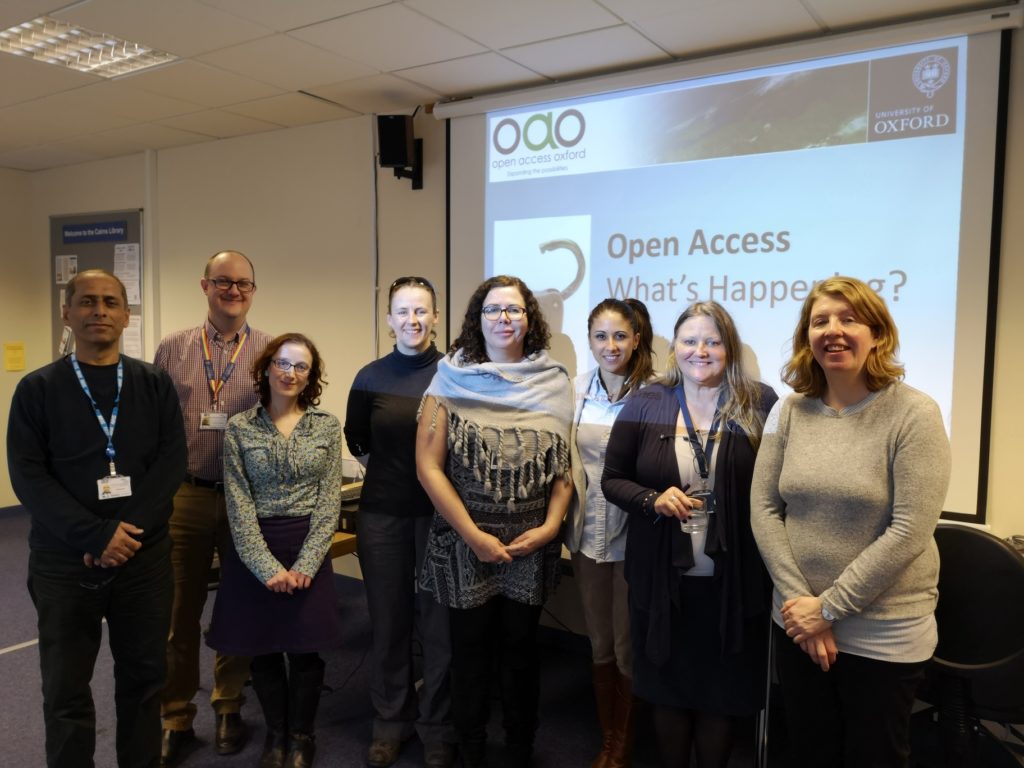As part of Open Access Week, the Oxford BRC in collaboration with the Bodleian Libraries have organised a training event for researchers on what open access is.
Open access (OA) research papers are digital, online, free of charge and free of most copyright and licensing restrictions. It is made possible by the internet and the consent of the author or copyright-holder.

The University of Oxford has an Open Access Publications Policy which states that it wants to “ensure the widest possible access to its world-class research”.
Owen Coxall, the Bodleian Healthcare Libraries’ Outreach & Enquiries Services Manager, said: “The value and usefulness of research increases the more widely it is seen and available to be used by others. That’s why the University is a strong proponent of open access.
“This training session has been organised to explain to BRC-funded researchers the importance of open access and to sweep away any confusion around terminology like ‘act on acceptance’, as well as explore the expectations around open access of key funding bodies and of the Research Excellence Framework [REF 2021],” he said.
The training also showed researchers how to deposit their manuscript into the University’s institutional repository, and useful online tools to help them find out about funder requirements.
Judith Ames, Senior Library Assistant at the Bodleian Healthcare Libraries, said that open access has several benefits: “It means more exposure and consequently a higher citation rate; papers are available to researchers in the developing world; and it is easier for practitioners to put the research into practice – something that is very important for the BRC and it’s aim to support translational research.”
One of the aims of open access is to foster collaboration between researchers, enhance public engagement with research and maximise its intellectual, social, cultural and economic impact.
For this reason, open access is one of the pillars of the Starbios2 project, an EU initiative that aims to implement a Responsible Research and Innovation (RRI) approach in research institutions. The Oxford BRC, along with the University’s Medical Sciences Division is a key partner in the project.
Dr Lorna Henderson, Clinical Research Manager at the Oxford BRC, said: We wanted to organise this workshop in collaboration with our colleagues at the Bodleain during Open Access Week at the University of Oxford to inform our BRC researchers and keep them updated on this important topic.
“Open access is a fundamental part of RRI. Any research is based on previous research findings, so it’s important – not just for the furtherance of knowledge but also for the benefit of society as a whole – that there is free and unrestricted access to scientific publications online. “We want wider society to feel they have a stake in scientific research, and that it is relevant and accessible to them.”